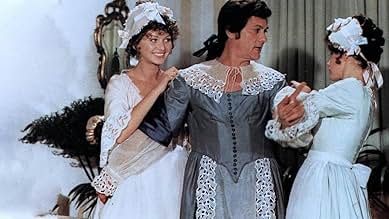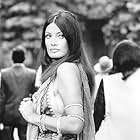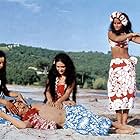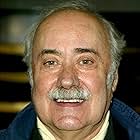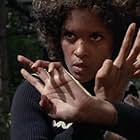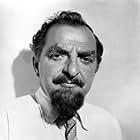Legendary Venetian lover Giacomo Casanova (Tony Curtis) escapes the prison cell provided him by the Doge and goes on the lam. In the confusion of his escape he encounters a rascally pickpocket/card cheat named Giacomino (also played by Curtis) who is a dead-ringer for him.
His doppelganger is less interested in love and more interested in food and money. Giacomino is willing to pretend to be Casanova (or whoever) to get them.
At first Casanova finds the mere existence of such a person to be disconcerting to say the least. But when faced with the unforeseen problem of erectile dysfunction and a situation in which his services in the bedroom are called for the double suddenly becomes useful in preserving his reputation.
The year before this was made Fellini's take on the Casanova legend hit theatres and very quickly came to be acknowledged as one of the most visually extravagant and breathtakingly avant garde spectacles in modern cinema - a dreamlike utilization of the language of film to tell a legendary story which took audiences to a completely difference place.
Just a mounting of a similar production upon the Casanova legend within the same year was thus pretty bad timing and this one measures up quite poorly against the other in every way that is important.
On the surface it could have looked very much the other way around. The Fellini version boasted Donald Sutherland (hardly a leading man of Curtis's calibre at the time) and surrounded him with Italian actors who were not particularly famous outside their home country.
Casanova & Company however brought together Curtis (a Hollywood legend) with Marisa Berenson (Barry Lyndon), Britt Ekland and Hugh Griffith. It also assembled a bevy of breathtakingly beautiful Playboy Playmates from Europe and was able to win a kind of cross-promotion with that magazine which should have enabled it to get much more of a foothold with mainstream audiences than the Fellini version did. But that did not happen.
This long forgotten paint-by-numbers Euro (Austrian-Italian-French-German) sex comedy got lost quite quickly and deservedly so. But one does sympathize with Tony Curtis who perhaps might have seen this as part of a comeback after a couple of failed network TV series and years back and forth appearing in European film and middle to lower budget American productions.
Curtis was in his early 50s by the time he made this having spent much of 40s appearing in work well below the quality of that which he had been in at peak of his Hollywood stardom in his early to mid 30s. Like many famous talents of greater past fame he attempted to extend his life in sizable roles by going to Europe to star in obscure productions.
His involvement or that of a similarly famous American star in a similar production, offered overseas producers a way of gaining distribution into the lucrative North American movie market. But it also gave a title like this a kind of credibility with domestic audiences in Europe. Moviegoers are happy to embrace parochial film industries when that which is produced by them is not drek.
Having a respected film star from America has often been like a stamp of approval in that way silly as the notion of that may be.
The numerous ties to the Playboy empire made me wonder if they had any role in financing it.






